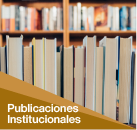Biohuerto Escolar como Estrategia de Aprendizaje en los estudiantes de 3° y 4° de Primaria de la I.E. N.° 50738 de Chamancalla, Ancahuasi, Anta, Cusco, 2022 - 2023
Fecha
2024-06-03Autor
Lopez Medina, Regina
Moscoso Guillen, Lisbet
Nivel de Acceso
Acceso AbiertoMetadatos
Mostrar el registro completo del ítemResumen
La investigación titulada Biohuerto Escolar como Estrategia de Aprendizaje en los estudiantes de 3.° y 4-° de Primaria de la I.E. N.° 50738 de Chamancalla, Ancahuasi, Anta, Cusco, tiene el objetivo de implementar un biohuerto escolar, considerando los saberes sobre siembra y cosecha que tienen los pobladores de una comunidad del Cusco. La realizamos según la metodología cualitativa, donde mostramos cómo funciona el biohuerto. Trabajamos sesiones de aprendizaje para que los estudiantes y docentes puedan apreciar las actividades realizadas en el biohuerto escolar, ya que son aprendizajes que podemos incentivar los docentes en las escuelas primaria y así valorar e incorporar estos temas en las diferentes áreas del currículo educativo. Así mismo, en este proyecto vimos que es importante trabajar en el huerto escolar porque es un modo de incentivar la autonomía alimentaria, aspecto significativo para la escuela y también hacer que cada estudiante vea o descubre sus capacidades realizando y recordando todo de la agricultura andina desde su vivencia, revalorando así, las costumbres de la comunidad que se ya se va perdiendo en la actualidad de qué manera ellos practican las enseñanzas de sus abuelos que les enseñaba a ver los solsticios. Abstract The research entitled School Biogarden as a Learning Strategy in 3rd and 4th grade Primary School students of the I.E. No. 50738 of Chamancalla, Ancahuasi, Anta, Cusco, has the objective of implementing a school biogarden, considering the knowledge about planting and harvesting that the residents of a community in Cusco have. We carry it out according to qualitative methodology, where we show how the biogarden works. We work on learning sessions so that students and teachers can appreciate the activities carried out in the school biogarden, since they are learning that teachers in primary schools can encourage and thus value and incorporate these topics in the different areas of the educational curriculum. Likewise, in this project we saw that it is important to work in the school garden because it is a way to encourage food autonomy, a significant aspect for the school and also make each student see or discover their capabilities by carrying out and remembering everything about Andean agriculture from their experience, thus revaluing the customs of the community that are already being lost today, how they practice the teachings of their grandparents who taught them to see the solstices. Keywords: school organic garden, significant learning, attitudes, perceptions, revaluing Andean agriculture from the teachings of grandparents. Pisi rimayllapi willasayki Kay investigacionmi sutichasqa Biojardin Escuela nisqa Estrategia de Aprendizaje hina 3 kaq hinaspa 4 kaq grado Primaria yachaqkunapi I.E. No 50738 de Chamancalla, Ancahuasi, Anta, Qusqu, 2022 - 2023 watakunapi. Ruwayku metodología cualitativa nisqa maypichus rikuchiyku imaynatachus huerta orgánica llamk’an chayjinamanta significativamente sesiones de aprendizaje nisqapi imaraykuchus ancha importanten chay proyectota ruway institución ukhupi chay hinapi yachakuqkuna hinallataq yachachiqkuna chaninchankuman ruwaykunata ruwasqakunata chay escuela huerta orgánica nisqapi yachakusqankumanta pacha rikuchiykunata, chaykunatan llank’asunman chaninchanapaq, churasunman ima, imaymana ruwaykunapi, chay hinapi imaymana ruwaykunapi llank’anankupaq, hinallataqmi llank’ankuman hatun responsabilidadwan, compromisowan ima kay llank’aypi 3 kaq, 4 kaq grado yachakuqkunawan, chhaynapi yachaqkuna tarinankupaq yachay wasi huerta ukupi chikan chikan rurashkakuna. Chaynallataqmi kay proyectopiqa qawarqaniku yachay wasipa huertanpi llamkayqa ancha allin kasqanmanta, chaynallataqmi yachaywasi ukupi yupaypas, chaymi yachay wasipaq material educativo hinaspa significativo kasqanrayku, iskaynin yachachiqkuna, maypim sapa yachakuq qawan utaq tarin atiyninkuta, apaspa lluqsispa tukuy imata yuyarispa agricultura andinamanta., kunan pacha chinkasqaña llaqtapa costumbrenkunata musuqmanta chaninchasqankumanta, imaynatam solsticiokunata qawanankupaq yachachiq hatun tayta-mamankunapa yachachikuyninta ruwanku. Chanin rimaykuna: yachaywasipi biohuerta, sumaq yachay, actitudes, percepciones, hatun tayta mamakunapa yachachiyninmanta andino chakra llamkayta musuqmanta chaninchay.







